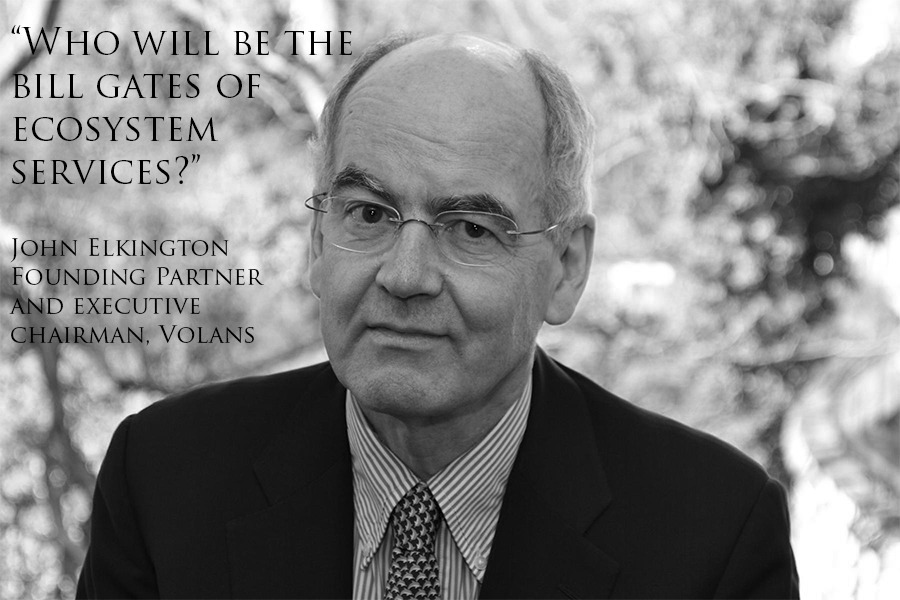Oct 06
20210
Avaaz, Social Engineering, World Wildlife Fund (WWF)
"Nature Based Solutions" "Net-gain Solutions" Convention on Biological Diversity (CBD) Finacialization of Nature Natural Capital Natural Climate Solutions New Deal for Nature Offsetting The Economist World Econmic Forum WWF
WATCH: The New Financial Markets on Nature’s Destruction Explained to my Grandmother – Frederic Hache
Published November 24, 2020
“This video summarizes the below reports: – 50 shades of green part II: the fallacy of environmental markets – 50 shades of green part III: sustainable finance 2.0″ [Source: Green Finance Observatory] [Download: 50-shades-biodiversity-final]
“This [] illustrates why protection of nature based on a price mechanism is more unstable than protection based on law.” — Frederic Hache
[Frédéric Hache is a financial expert. He worked for twelve years in investment banking, selling and structuring currency derivatives. After that he was head of policy analysis at the NGO Finance Watch for six years, analysing EU legislation linked to systemic risks / financial stability. He now heads the Belgian think tank Green Finance Observatory, lectures in sustainable finance at Science Po Paris, works as a freelance expert on sustainable finance and environmental markets and is pursuing a PhD in political economy. His research interests are about market-based solutions applied to environmental and social policies. They include natural capital, carbon and biodiversity markets, catastrophe bonds and sustainable finance.]








![Source: Indigenous Environmental Network [IEN]](https://i0.wp.com/www.wrongkindofgreen.org/wp-content/uploads/2020/09/IEN-Statement-on-GND-Net-Zero.png?resize=1196%2C358&ssl=1)














 The 4IR wants to scare us into its devouring jaws by pointing to impending disaster and claiming that nobody can save us but itself.
The 4IR wants to scare us into its devouring jaws by pointing to impending disaster and claiming that nobody can save us but itself. And yet its forked robotic tongue tells us that this phoney reality is in fact an “enhanced” or “augmented” one.
And yet its forked robotic tongue tells us that this phoney reality is in fact an “enhanced” or “augmented” one.
 When the 4IR talks about “
When the 4IR talks about “






















![Mark R. Tercek is the former president and CEO of The Nature Conservancy stepping down June 7, 2019. [A #MeToo scandal engulfs The Nature Conservancy]. He is co-author of the book Nature’s Fortune: How Business and Society Thrive by Investing in Nature](https://i0.wp.com/www.wrongkindofgreen.org/wp-content/uploads/2019/09/Tercek_PES_small.jpg?resize=690%2C604&ssl=1)



![April 4, 2019, Conservation International (CI) expresses its support for "natural climate solutions". Fast facts: 2018 revenues for CI were in access of 145 million USD (145,013,840.) Wes Bush, CEO of Northrup Grumman, one of the world's largest weapons manufacturers, serves on the board of Conservation International, while Rob Walton, from the Walmart empire, serves as chairman of the executive committee. [2018 Form 990]](https://i0.wp.com/www.wrongkindofgreen.org/wp-content/uploads/2019/09/Conservation-International-April-4-2019-Forgotten-Solutions-Thunberg-Mobiot-Guardian.png?resize=530%2C638&ssl=1)
![Conservation International, A New Deal for Nature: "Countries are in the process of negotiating a new global biodiversity framework through the Convention on Biological Diversity (CBD), which has been called a “New Deal for Nature.” This pact, expected to be agreed in Beijing in late 2020, will lay out the global strategy for protecting nature through 2030." Identified in the Level 2 Actions for "mainstreaming biodiversity" is "incorporating the value of biodiversity into national accounting processes". [Source]](https://i0.wp.com/www.wrongkindofgreen.org/wp-content/uploads/2019/09/NDFN-CI.png?resize=690%2C419&ssl=1)

![Nature4Climate Voices, Paul Polman: served in senior leadership roles at both Nestlé and Procter & Gamble prior to becoming CEO of Unilever (2009-2018), B Team chair, chair of the International Chamber of Commerce, appointed to the U.N. Secretary General’s High-level Panel responsible for developing the Sustainable Development Goals (SDGs), founding member of the World Business & Sustainable Development Commission, U.N.-appointed SDG Advocate, leading member of Financing Capitalism for the Long-Term (FCLT), the Coalition for Inclusive Capitalism, the Global Commission on the Economy and Climate and the Food and Land Use Coalition (which he chairs), counsellor and chair of the Global Advisory Board of One Young World (co-founded by “B Team expert” David Jones), named an Honorary Knight Commander of the Order of the British Empire (KBE) for services to business in 2018, a non-executive director of Dow since 2010. Stern also serves as commissioner to the Energy Transitions Commission and has been selected to serve as a One Planet Lab member, the aforementioned high-level advisory group steered by the French Government. [Further reading: The New Green Deal is the Trojan Horse for the Financialization of Nature, Volume I, Act V and A Design to Win — A Multi-Billion Dollar Investment, Volume II, Act I]](https://i0.wp.com/www.wrongkindofgreen.org/wp-content/uploads/2019/09/Polman-Nature4Climate.png?resize=690%2C218&ssl=1)
![Nature4Climate Voices, Christiana Figueres: former executive secretary of the United Nations Framework Convention on Climate Change (UNFCC) from 2010 to 2016, vice-chair of the Global Covenant of Mayors for Climate & Energy, ClimateWorks Board Member, World Bank Climate Leader, B Team leader, leader of Mission2020, and board member of both the World Resources Institute and Unilever. Figueres is also identified as a “distinguished member” of Conservation International. [Further reading: To Plunder What Little Remains: It’s Going To Be Tremendous, Volume II, Act III]](https://i0.wp.com/www.wrongkindofgreen.org/wp-content/uploads/2019/09/Figueres-Nature4Climate.png?resize=690%2C218&ssl=1)
![Nature4Climate Voices, Nicolas Stern: international advisor to the Global CCS Institute, co-chair of the Global Commission on the Economy and Climate overseeing The New Climate Economy, chair of SYSTEMIQ board of directors, former World Bank chief economist. [Further reading: A Design to Win — A Multi-Billion Dollar Investment, Volume II, Act I]](https://i0.wp.com/www.wrongkindofgreen.org/wp-content/uploads/2019/09/Stern-Nature4Climate.png?resize=690%2C286&ssl=1)
![Nature4Climate Voices, Achim Steiner: UNDP Administrator, and former advisory board member of The Economics of Ecosystems and Biodiversity (TEEB - now the Natural Climate Coalition, i.e. the financialization of nature), voice for the 2009 Green New Deal [Further reading: They Mean Business [Volume II, Act IV]](https://i0.wp.com/www.wrongkindofgreen.org/wp-content/uploads/2019/09/Steiner-Nature4Climate.png?resize=690%2C208&ssl=1)




![September 3, 2018, Global Landscapes Forum. During the closing remarks of the Global Landscapes Forum on December 9, 2018, at COP24, Jennifer Morgan, executive director of Greenpeace International stressed that in addition to shifting global focus from the oil and transportation sectors to land and forests, additional co-operation was required to reach consensus on the New Deal for Nature.[Further reading: The House is On Fire! & the 100 Trillion Dollar Rescue, Volume I, ACT VI] The GLF was formed in 2013 by the World Bank, the Center for International Forestry Research (CIFOR) and the United Nations Environment Programme](https://i0.wp.com/www.wrongkindofgreen.org/wp-content/uploads/2019/09/Global-Landscape-Forum-Sept-3-2018-Forgotten-Solutions.png?resize=595%2C302&ssl=1)


![December 10, 2018, Achim Steiner promotes the "Forgotten Solutions". Steiner will appear this week at the Social Good Summit (founded and/or financed by the UN, Purpose, Gates Foundation, etc.) with Greta Thunberg and Christiana Figueres. Steiner, UNDP Administrator is a former advisory board member of The Economics of Ecosystems and Biodiversity (TEEB). TEEB, initiated in 2008, and officially launched in 2012, hosted by UNEP and backed by the European Commission and countries including Germany, Norway, and the United Kingdom, has since been absorbed/rebranded into the Natural Capital Coalition. The Natural Capital Coalition is working with the world’s most powerful corporations and institutions for the implementation of the financialization of nature.]](https://i0.wp.com/www.wrongkindofgreen.org/wp-content/uploads/2019/09/UNREDD-December-10-2018-Steiner-Forgotten-Solutions.png?resize=538%2C625&ssl=1)















































































































![The Thunberg-Monbiot film, emphasizing the urgency of funding “natural solutions”, was paid for by Conservation International and the aforementioned *Food and Land Use Coalition, with “guidance” provided by Nature4Climate (The Nature Conservancy, We Mean Business, WWF, UN-REDD, et al.) and Natural Climate Solutions. [*Member foundations include ClimateWorks, the David & Lucile Packard Foundation, the Ford Foundation, the Gordon & Betty Moore Foundation, Good Energies, and Margaret Cargill.]](https://i0.wp.com/www.wrongkindofgreen.org/wp-content/uploads/2019/09/Natural-Climate-Solutions-Nature-Conservancy.png?resize=369%2C431&ssl=1)












